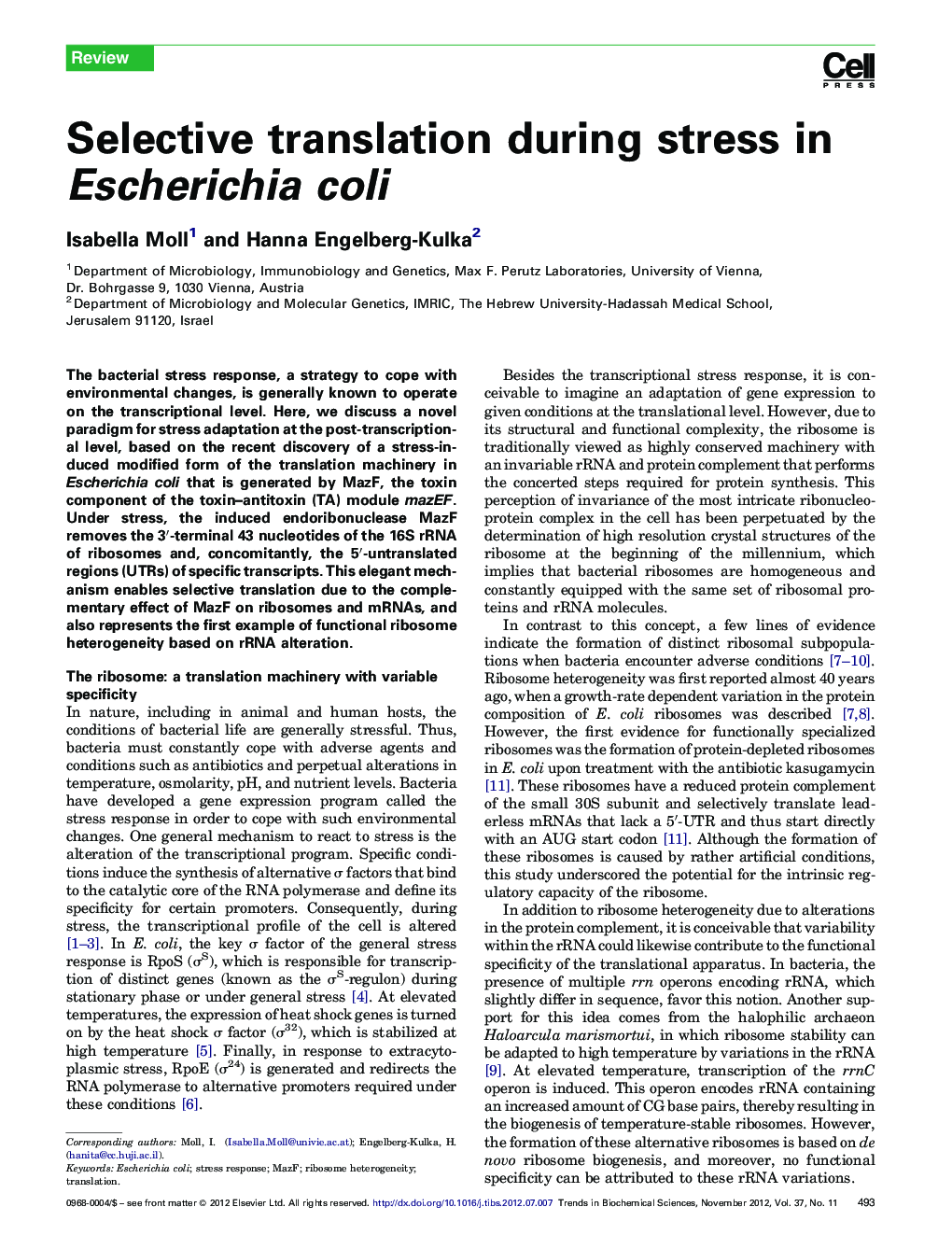| Article ID | Journal | Published Year | Pages | File Type |
|---|---|---|---|---|
| 2030856 | Trends in Biochemical Sciences | 2012 | 6 Pages |
The bacterial stress response, a strategy to cope with environmental changes, is generally known to operate on the transcriptional level. Here, we discuss a novel paradigm for stress adaptation at the post-transcriptional level, based on the recent discovery of a stress-induced modified form of the translation machinery in Escherichia coli that is generated by MazF, the toxin component of the toxin–antitoxin (TA) module mazEF. Under stress, the induced endoribonuclease MazF removes the 3′-terminal 43 nucleotides of the 16S rRNA of ribosomes and, concomitantly, the 5′-untranslated regions (UTRs) of specific transcripts. This elegant mechanism enables selective translation due to the complementary effect of MazF on ribosomes and mRNAs, and also represents the first example of functional ribosome heterogeneity based on rRNA alteration.
